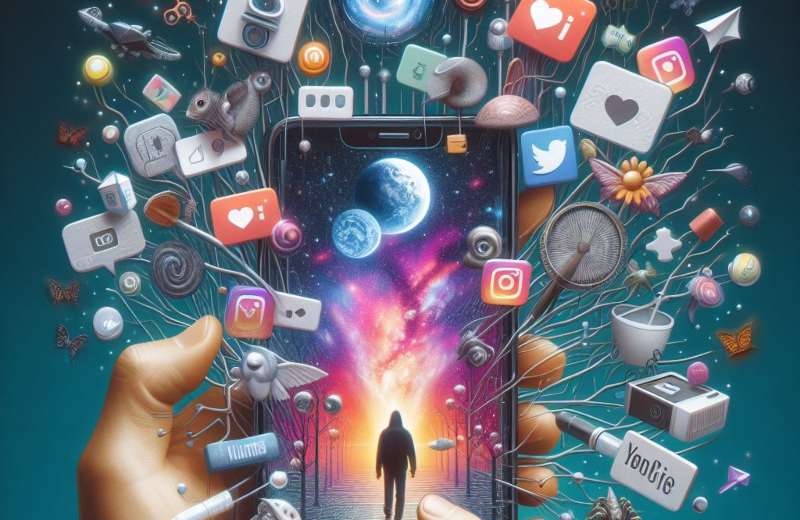In an age where social media permeates every aspect of our daily lives, it’s easy to overlook how it affects our perception of reality. The rise of social media has not only changed how we connect and communicate but has also altered our understanding of what constitutes meaningful engagement and authenticity. This article explores the concept of the “social media app banality of life” in the context of social media, examining how the platform’s pervasive nature can sometimes reduce our daily experiences to a series of curated posts and filtered moments.
1. Understanding the Banality of Life
1.1 Defining Banality
Banality refers to the quality of being unoriginal or mundane, often characterized by a lack of depth or significance. In the context of daily life, it describes the ordinary, repetitive nature of routine activities and interactions.
1.2 The Role of Social Media in Shaping Perceptions
Social media platforms offer a curated glimpse into people’s lives, often highlighting moments that seem extraordinary or idealized. This curation can make the ordinary aspects of life appear trivial or less interesting by comparison.
2. The Impact of Social Media on Perceived Authenticity
2.1 Curated Content and Its Effects
social media app banality of life users often present a polished version of their lives, focusing on highlights and achievements rather than everyday experiences. This selective sharing can lead to a skewed perception of what is normal or desirable.
2.2 The Illusion of Perfection
The constant exposure to seemingly perfect lives can create a sense of inadequacy and dissatisfaction with one’s own life. This illusion of perfection contributes to the sense that everyday experiences are mundane or lacking in value.
3. The Consequences of Social Media’s Influence on Daily Life
3.1 Reduced Appreciation for Everyday Moments
When social media emphasizes exceptional moments, it can diminish our appreciation for the simple, everyday experiences that constitute much of our lives.
3.2 Increased Pressure to Conform
The desire to match the perceived standards of success and happiness showcased on social media can lead individuals to alter their behaviors or choices, often at the expense of their genuine interests or well-being.
3.3 Impact on Mental Health
The pressure to constantly project an idealized version of oneself and the comparison with others can contribute to feelings of anxiety, depression, and low self-esteem.
4. Navigating Social Media Mindfully
4.1 Recognizing the Distortion
Understanding that social media often presents a filtered view of reality can help users maintain a more balanced perspective on their own lives and experiences.
4.2 Embracing Authenticity
Encouraging authentic sharing and focusing on real-life connections can counteract the effects of curated content. Embracing one’s true self and experiences promotes a healthier relationship with social media.
4.3 Limiting Social Media Exposure
Setting boundaries on social media use and taking breaks can reduce the impact of its influence on one’s perception of life and self-worth.
5. The Role of Social Media in Shaping Modern Culture
5.1 Social Media as a Cultural Mirror
Social media reflects contemporary cultural values and trends, highlighting what society finds important or noteworthy at a given time.
5.2 Influencing Trends and Norms
The content and interactions on social media can shape cultural norms and trends, influencing how individuals perceive and engage with various aspects of life.
5.3 The Evolution of Social Media
As social media continues to evolve, its role in shaping perceptions and cultural norms will also change. Understanding these dynamics is crucial for adapting to new trends and challenges.
6. Practical Tips for Maintaining Balance
6.1 Cultivating Offline Relationships
Building and nurturing relationships outside of social media can provide a more grounded and fulfilling sense of connection.
6.2 Focusing on Personal Values
Identifying and prioritizing personal values and goals can help individuals stay true to themselves amidst the pressures of social media.
6.3 Engaging in Meaningful Activities
Participating in activities that bring genuine joy and satisfaction can counterbalance the impact of social media’s emphasis on superficial aspects of life.
7. Conclusion
Social media has fundamentally transformed how we experience and interpret our lives, often highlighting the banality of daily routines by juxtaposing them with curated, idealized portrayals. By understanding the impact of social media on our perceptions and actively working to maintain a balanced view, individuals can better appreciate the value of their everyday experiences and foster a healthier relationship with digital platforms.

Leave a Reply